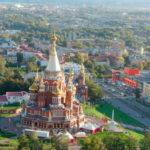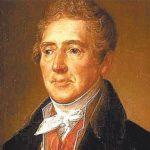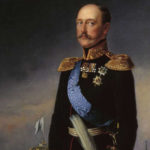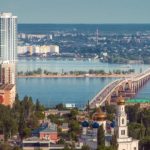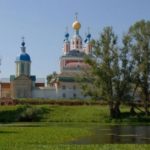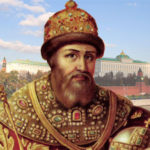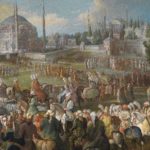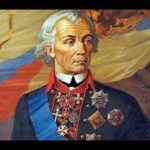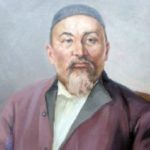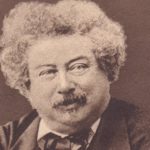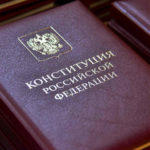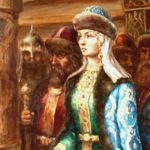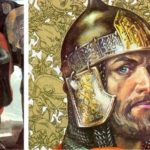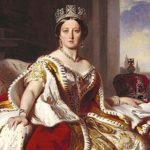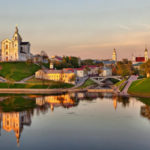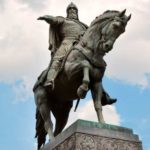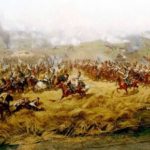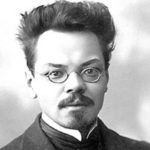23 interesting facts about Yemelyan Pugachev
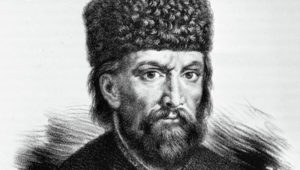 One of the most famous rebels in the history of the Russian Empire was Yemelyan Pugachev. This rebellious Cossack revolted, which swept the wave throughout the country, stirred up the political situation and really threatened the Russian throne. These years went down in history as the Time of Troubles, and this is a very accurate name – the Pugachev revolt really frightened those in power.
One of the most famous rebels in the history of the Russian Empire was Yemelyan Pugachev. This rebellious Cossack revolted, which swept the wave throughout the country, stirred up the political situation and really threatened the Russian throne. These years went down in history as the Time of Troubles, and this is a very accurate name – the Pugachev revolt really frightened those in power.
He came from a Cossack family. Yemelyan himself enlisted at the age of 17 to replace his father, who did not want to retire without replacement.
It is still not known for certain when Yemelyan Pugachev was born. There are only approximate dates.
Interestingly, he was born exactly one hundred and ten years later in the same village (in the territory of the modern Vologda Oblast) as another rebel – Stepan Razin.
Yemelyan Pugachev got two children, he had a son and a daughter.
The source of origin of the name of the famous rebel is reliably established. His grandfather was nicknamed “Pugach”, hence the name came from.
Long before the riot, Yemelyan Pugachev wanted to quit the ranks of military Cossacks for health reasons. However, he was refused – he was only allowed to take a vacation to recover.
When the Pugachev uprising broke out, the Russian throne tried in every possible way to hide it from foreign powers in order to prevent them from understanding how unstable the political situation is in the country. But rumors are spreading fast, but you can’t hide the awl in a bag.
The first attempt at the rebellion Yemelyan Pugachev ended in failure – he was arrested and sentenced to life in prison. But he soon escaped from the place of serving his sentence.
The Pugachev uprising became the largest in the history of the Russian Empire.
Yemelyan Pugachev had no education. Generally no.
The rebel chieftain tried to impersonate the supposedly miraculous surviving heir Peter III.
The army of Yemelyan Pugachev was also armed with artillery, and guns for it were cast at the captured factories of the Urals.
Ataman was married twice, but only in fact, since de jure he never divorced his first wife.
Foreign powers secretly sponsored the Pugachev revolt. The Ottoman Empire (now Turkey), for example, regularly transferred financial support to it.
According to popular rumors, Pugachev during his lifetime hid innumerable treasures. Some are still looking for them.
The attitude towards the rebellion of Yemelyan Pugachev was ambiguous. Some cities fiercely defended themselves from his troops, while others hospitably opened their gates.
After the execution of Pugachev, the uprising quickly came to naught, partly because after the news of his death, the flow of foreign financing of the riot immediately dried up.
Catherine II ordered, after the execution of Yemelyan Pugachev, to erase the very memory of him and his uprising, so not so much information has survived to this day as it could.
Pugachev’s second wife, after the execution of her husband, was imprisoned, where she spent thirty years.
The tower in the Butyrka prison in Moscow served as the place of imprisonment of the rebel chieftain before his execution. It has survived to the present day.
After the capture of Yemelyan Pugachev in Moscow, he was personally delivered by the famous Suvorov.
There is a theory that in fact Pugachev was secretly killed in prison, and then another person was publicly executed in the square.
Most of the information about the Pugachev uprising remained classified for almost a century and a half.


